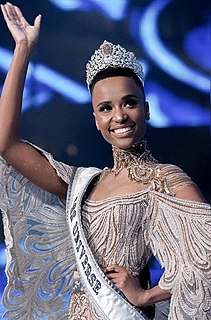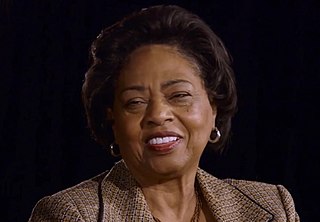A Quote by Isabel Wilkerson
That's one of the biggest losses, I think, to African American families, is that people, once they left, they turned away from the South. They didn't look back, and they often didn't tell their children about it. They didn't want to talk about it. It was too painful, what they'd gone through and the caste system of the South, which was Jim Crow.
Related Quotes
People talk about Jim Crow as if it's dead. Jim Crow isn't gone. It's adjusted. Look at the disproportionate sentences meted out to blacks caught up in the criminal justice system. There's a problem when people profit from putting and keeping African Americans in prison. We need to do a better job as a nation understanding the real values the country's built upon in terms of fairness, equality and equal opportunity.
I think the important thing to understand first and foremost about Michael Jackson is that he was the international emblem of the African American blues spiritual impulse that goes back through slavery - Jim Crow, Jane Crow, up to the present moment, through a Louis Armstrong, through a Ma Rainey, through a Bessie Smith, all the way to John Coltrane, Aretha Franklin and Nina Simone.
I think we've become blind in this country to the ways in which we've managed to reinvent a caste-like system here in the United States, one that functions in a manner that is as oppressive, in many respects, as the one that existed in South Africa under apartheid and that existed under Jim Crow here in the United States.
If you look for instance at the automobile industry, part of the reason that you have the expansion of that sector, is precisely because we have gone out to talk to the automobile companies to explain government policy with regard to that sector, to talk to them about the MIDP and things like that. And indeed, it has been a very important part of attracting those investors to put in money in the South African economy and build motorcars in South Africa.
I grew up on a farm and, prior to my father's murder, I wanted to get away from the farm, and away from South Georgia where the Jim Crow laws absolutely controlled anything and everything we did. So, my goal was to leave once I completed high school. But on the night of my father's murder, I made a commitment that I would not leave the South, that I would stay and devote my life to working for change. So, my father's murder has shaped the course of my life even up to this very day.
In studying food, you embrace everything. Food exposes the long, complex history of the South - slavery, Jim Crow segregation, class struggle, extreme hunger, sexism, and disenfranchisement. These issues are revealed through food encounters, and they contrast this with the pleasure and the inventiveness of Southern cuisine. Food is always at the heart of daily life in the South.
We do not have a South African as a member of the African Commission. The President of the Commission comes from Mali, the Deputy comes from Rwanda and then we have got all these other members, ordinary commissioners. There is no South African there. And the reason, again, for that is not because we didn't have South Africans who are competent.





























